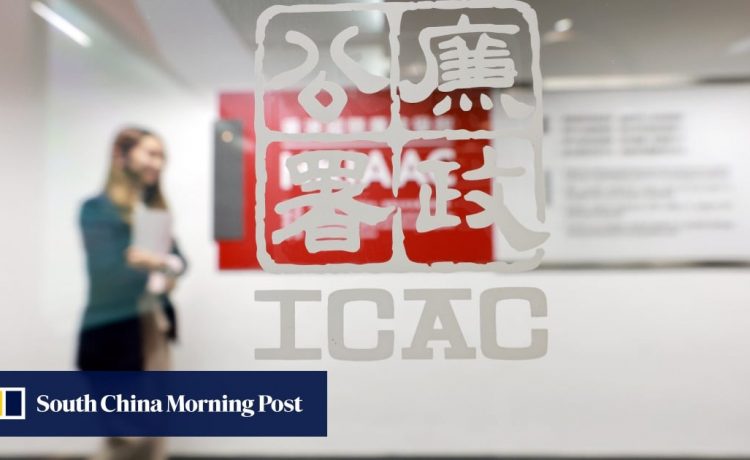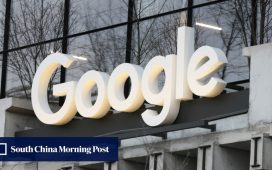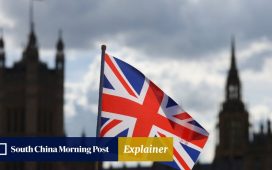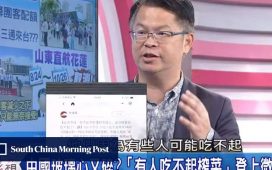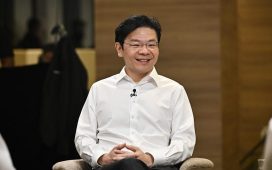Hong Kong’s anti-corruption academy will be launched this month with a nine-day wealth investigation course organised alongside the UN as part of an effort to create a global learning platform for law enforcement.
Danny Woo Ying-ming, commissioner of the Independent Commission Against Corruption (ICAC), said the course would be run with the UN’s Office on Drugs and Crime and had attracted an overwhelming response.
He said 40 applications were received from various countries for the course, which had just 20 spots available.
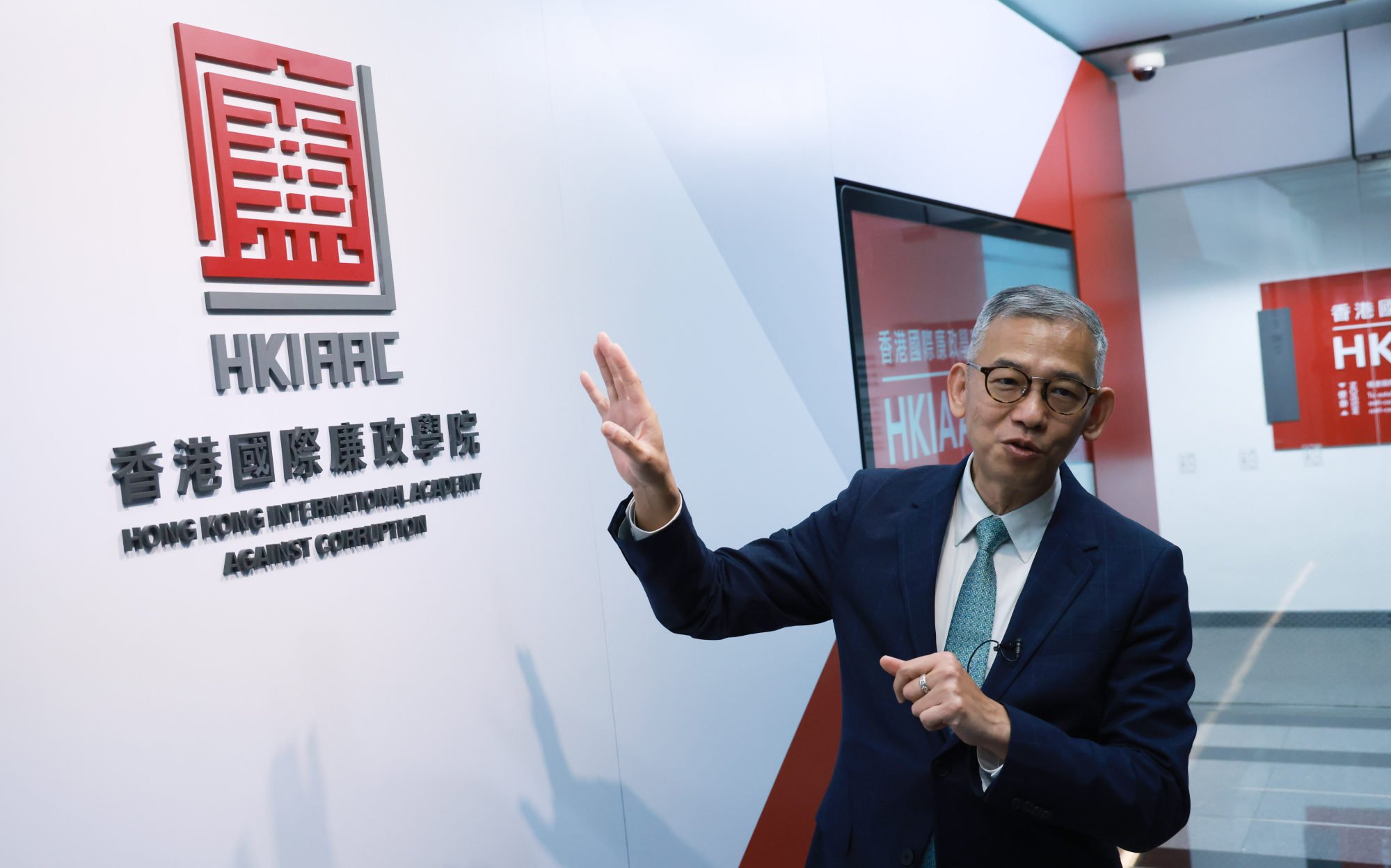
In an interview to mark the ICAC’s 50th anniversary and highlight its future work, Woo said he hoped the Hong Kong International Academy Against Corruption would become a forum for experts in the field from around the world to share their knowledge and experience.
“With this platform, we will look into [overseas counterparts’] needs and design a course accordingly,” Woo said.
“We also hope they will share how they tackle the problem of corruption they face … we emphasise interactiveness here.”
He said anti-corruption officials from mainland China, Macau, Spain, Panama, Sweden and Iraq were among those expected to go through the first course.
As well as lessons in areas redesigned into classrooms on two floors of the ICAC headquarters in North Point, attendees will get to hone their skills in virtual reality scenarios.
The ICAC has designed a virtual reality programme where anti-corruption officers will be able to take part in simulated situations they can expect to face during their work.
Officers will be able to learn how to handle difficult arrest operations as they deal with a devious criminal in one simulation.
Hong Kong’s ICAC hosts UN anti-corruption workshops in first-ever move for agency
Hong Kong’s ICAC hosts UN anti-corruption workshops in first-ever move for agency
The students can interact with a lifelike avatar of the individual they are expected to arrest, who will provide different responses based on the officer’s actions.
In one case, if the officer involved does not detect the detained individual’s attempt to destroy evidence through a phone call fast enough, the program will show footage of destruction of vital material at an office before the virtual session ends.
The academy is expected to organise 20 courses for international students and 10 for local managerial officials in various sectors at risk of corruption in its first year.
But Woo reassured the public that the academy’s work would not detract from the ICAC’s primary role of deterrence and eradication of corruption in Hong Kong.
“Our role hasn’t changed,” Woo said. “The ICAC’s role is simple – being a guardian against corruption to safeguard citizens’ livelihoods.
“This will remain our core job for the next 50 or even 100 years.”
Hong Kong’s ICAC arrests 23 as part of football match-fixing probe
Hong Kong’s ICAC arrests 23 as part of football match-fixing probe
Woo added that the ICAC could not have notched up its list of busts and campaigns over 50 years on its own.
“Hong Kong’s clean record comes from our collective effort over the years,” he said. “It is precious and we shouldn’t backtrack on our success.”
Since it was set up to bring corrupt British-born Hong Kong police Chief Superintendent Peter Godber to justice in 1974, the ICAC has tackled a variety of corruption investigations that involved top government officials and businessmen.
These include former chief secretary Rafael Hui Si-yan and property tycoon Thomas Kwok Ping-kwong, as well as businessman George Tan Soon-gin, the mastermind behind the Carrian Group, a Hong Kong conglomerate at one stage worth US$1 billion which collapsed into bankruptcy in 1983.
‘Geopolitical tensions could further hurt Hong Kong’s global corruption ranking’
‘Geopolitical tensions could further hurt Hong Kong’s global corruption ranking’
The incident led to a decade-long effort to unravel the scale of corruption and lawbreaking behaviour behind the group.
Woo said bribery cases in the city had shifted from systemic operations in public bodies to secretive transactions in the private sector.
But he added he was confident in his officers’ ability to unearth under-the-table corruption that had increasingly replaced cash pay-offs with contract deals.

